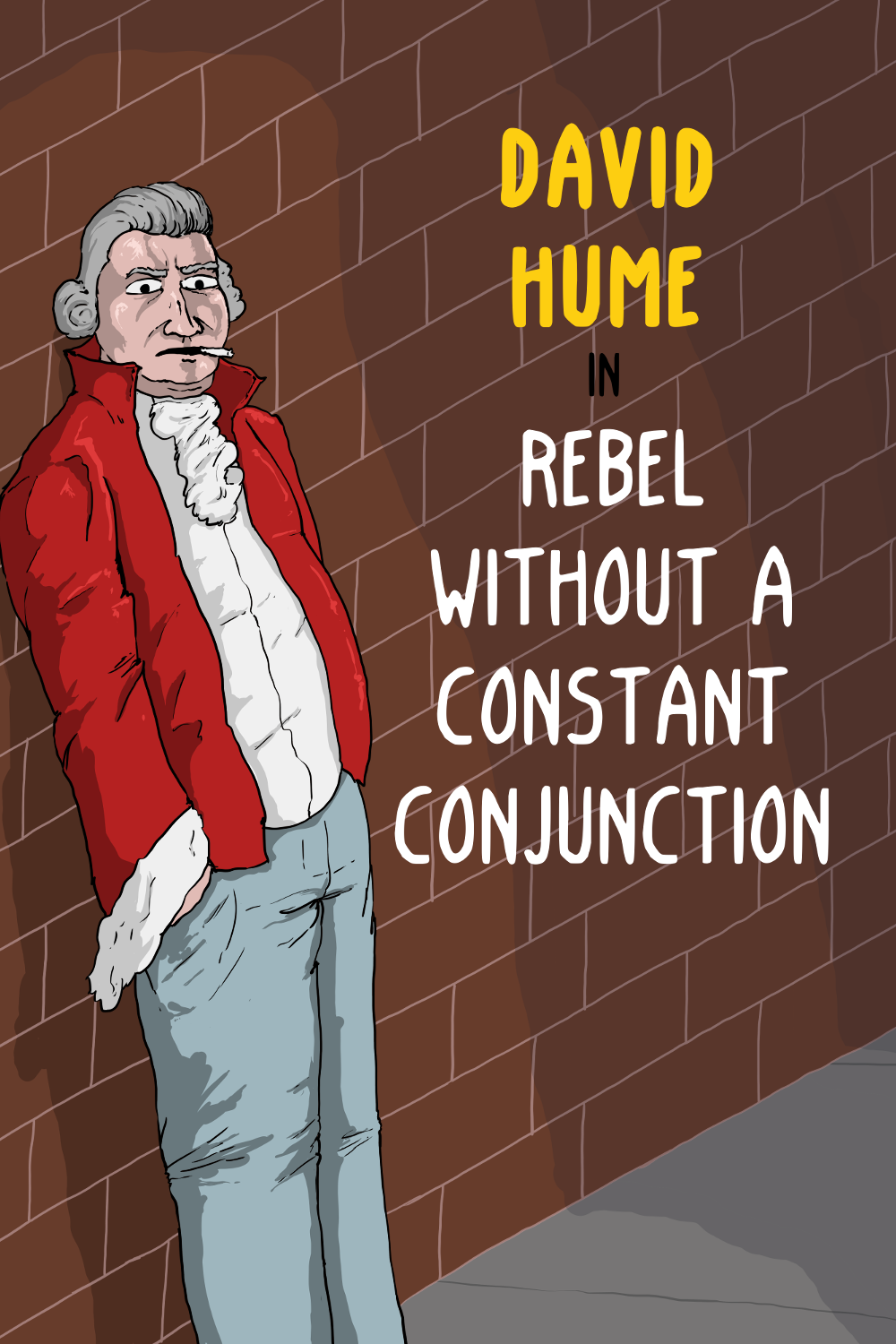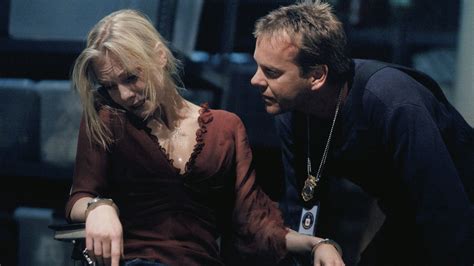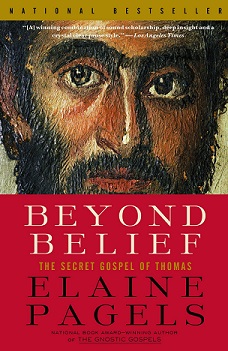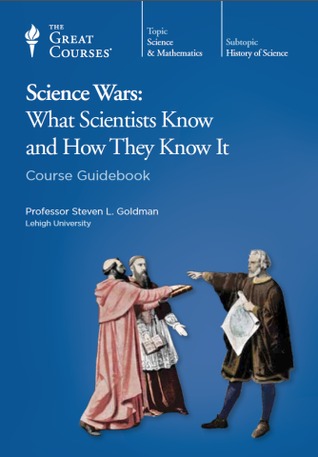|
Word Gems
exploring self-realization, sacred personhood, and full humanity
Franchezzo
|
Aftermath, Part I: His dangerous missionary work in the Dark Realms completed, Franchezzo enters Summerland. There, he’s honored both for his heroic altruism and spiritual recovery. Many would say the demanding experience of rescuing others is what advanced him. And, if this is the case, is not the concept of reincarnation strengthened with this seeming efficaciousness of experience?
|
return to the main-page article on "Hell"
Having successfully negotiated the dangers of the underworld, Franchezzo enjoys a new status of more-mature personhood, allowing him to take up residence in Summerland. His friends and family offer joyous welcome, throw a big party for him with refreshments of (non-alcoholic) wine, cakes, fruits, and other cuisinary delights.
Franchezzo had done very well. He braved many forbidding obstacles, under horrid conditions of black slime pits with creepy-crawly monsters. He never backed down but was always ready to help as opportunity allowed.
All this acknowledged, we must ask the question: Did the heroic altruism advance him spiritually? Are the “12 labors of Hercules” required to put oneself closer to God?
Many would say, yes – good works must be entered into to evolve the soul; and, if one is coming from a condition of substantial evil, then larger-than-life charitable deeds are required.
I must raise a hand of objection, however. My studies in this area, but, more importantly, personal knowledge concerning these matters, lead me to understand that heroic charity, or good deeds of any kind, of and by itself, will not produce the spiritually mature person.
But, it will be argued, look at the fine outcome enjoyed by Franchezzo. He did mature himself, he did become better, he did grow spiritually. The “proof is in the pudding,” many would assert, and what need have we even to debate this further? It all worked out so well for him.
He certainly did advance himself. But the question is, exactly how did this happen? I would suggest, contrary to the general view here, that good works are an indicator of advancement, not a cause.
Coming to know the cause of something can be very problematic. If we were to query philosopher David Hume on this question, he would say that good works constitute “constant conjunction” but not “necessary causal connection.”
This is a very important point, and to understand it I must assign you some homework. Please review Hume’s teaching on the “causation and induction” page. But let me give you a quick example of the fallacy in play here. Here's an inset-box from another writing:
|
the sun comes up in the east every morning, it's so obvious that the sun is circling the earth, we can even see it crossing the sky all day long, and we can predict that the sun will rise again in the east tomorrow morning, we’ve never been wrong yet in these predictions, so we know we're right

“It’s a simple matter of cause-and-effect,” the chanticleer chuckles to himself. “Anyone can see that my crowing causes the sun to rise. It happens every morning at my call, and has done so for thousands of years. What could be more convincing?”
‘if A is true, then B is also true’ – but, not so fast
Professor Steven Goldman of Lehigh University teaches a course, What Scientists Know and How They Know It. He says that just because an idea “works” as predicted doesn’t mean it’s true. There could be many other reasons why it “worked,” and maybe the popular reason isn’t the real reason at all. The fallacy is codified in ‘if A is true, then B is also true.’
modern science is based upon the following flawed experimental method
Professor Goldman, near the end of lecture two, asserts:
“There is a serious intellectual problem [extant today] that Francis Bacon and Rene Descartes were well aware of, and so were Galileo, Newton, and Leibnitz. [The problem arises in the] attempt to argue that a scientific theory is true because it makes correct experimental predictions… There is [in this a fallacious] form of reasoning [going back to the universities of the Middle Ages and their courses on logic] which is called ‘Affirming the Consequent.’ This is how it works:
"Let’s suppose we know that the following sentence is true:
If my theory is true, then, as a logical consequence, X should turn red.
"Well, [as it happens] X does turn red.
Therefore, my theory is true.
"This form of reasoning is a deductive logical fallacy – because there could be other reasons why X turns red.
[We can formulate this with]
If A is true, then B is also true
"And if B, in fact, turns out to be true, this does not tell you that A is true.
“All of modern science is based upon [flawed] experimental prediction of this sort. So, this means that, built into modern science, is a flaw [of logical procedure, making it prone to error]… There is [in modern science] a kind of fracture zone that precludes certainty. We can never be certain that just because a theory ‘works’ [or gives us a predicted response] that it is true [in a universal sense].
many theories in the history of science 'worked' but they were still very wrong
"As we will see in this course of lectures, there were many theories [in the history of science] thought to be correct [as a final answer] because they ‘worked,’ but were subsequently [overturned] and declared to be false. Newtonian mechanics being one example of this [overturning], once we hit relativity theory.
swept under the rug
"We will talk about this [problem] with respect to Newton and Leibnitz [who were well aware of this pitfall in logical reasoning], but then, [after these two great scientists passed from the scene] this awareness [of the logical fallacy] disappears [in the history of science], as if it could be swept under the rug.
"Nevertheless, it is a fact that a deductively fallacious reasoning is a fundamental feature of modern science."
‘if A is true, then B is also true’ – but, 'if B, in fact, turns out to be true, this does not tell you that A is true'
And this is the fallacious argument for reincarnation – “A is true, reincarnation is true,” therefore, we find what we consider to be supporting evidence, “B is true - we find ‘past lives’, NDE testimony, etc.”; however, even though B, in fact, is discovered, exists, or seems to exist, this does not mean that A is true.
As Professor Goldman points out, there could be other reasons for "B," other reasons why we find what appears to be "past lives" and NDE testimony.
On this page, you will find a great cache of evidence explaining why "B" exists, why the apparent support for reincarnation melts away under a torrid rebuttal of closer examination, a full review of the facts, better views and explanations.
The sun coming up in the morning is not "proof" that the rooster has power over our nearest star; further, though it appears, with millions of eye-witnesses, that the sun rises in the east and travels across the sky all day long to find its nocturnal repose in the west, the sun, in fact, knows nothing of this rising and setting.
Science is a process of piercing through shadows of "obvious" reality all the way to an undergirding of greater mystery, complexity, and wonder. The surface-meaning is rarely the final answer. Study quantum mechanics to find out just how true this statement is.
giving solidity to wind
The many points of rebuttal against "R" on this page are often ignored, "swept under the rug," as Professor Goldman intimated, made out to be non-existent. It is only this blinding of the eyes to a full treatment of the facts, however, that allows reincarnation to parade itself as legitimate. It is, in reality, a gigantic fraud, a hoax, it doesn't happen, is a product of one-sided investigation, of "painting the bulls-eye around the arrow," of sloppy reasoning and cultish dogma posing as knowledge; just an attempt to give solidity to wind - and as convincing as the chanticleer's sunrise anthem.

For further reading on Professor Goldman’s instruction, see the articles “Knowledge, Part II,” “Hume’s Causation and Induction,” and “Evolution: Not Enough Time, Part III.”
|
Good works often accompany spiritual growth. This is Hume’s “constant conjunction.” But, like the Sun rising when the rooster crows, there is no “necessary causal connection.”

It’s like the farmer praying for rain, the priest offering a benediction – then it rains. Prayers have been answered? – not necessarily. What about the other time you prayed for rain, or something else, and it didn’t happen? As Professor Goldman used the phrase, this is just “affirming the consequent.” And to those too willing to believe, it’s a very selective affirming, with negative examples filtered out.
But in the case of good works and spiritual growth, the former virtually always appears. Do good works cause the spiritual growth?
The missionary Guides of the Brotherhood Of Hope, along with many others on the other side, look at the wretched ones in the Dark Realms and say,
“These hard-core cases have so perverted themselves that they now appear to be wild beasts with claws and fangs. They seem to be so far gone that there’s no hope of recovery for them. But we have learned, from our own deeper sense of things, and from the teachings of senior Guides at very high levels, that all persons will yet be saved from their misdeeds. Beneath the rubble of misspent and misdirected life, lies sequestered and safeguarded a glimmer of light, a ‘spark of God.’ This – this! – essence of God-life is what makes us human, is indestructible, immortal, and cannot be extinguished, even if one wishes it to be so. One cannot escape one’s destiny to become a mature son or daughter of God and to enjoy life on a much higher level of being."
Editor's note: See the "Gospel Of Thomas" and its many references to the "inner light," the God-life within.
And so this is the real issue before us. The “spark of God” – which we’ve called the “true self” – remains inviolable. It is like the Sun which ever shines in the sky, even when dark clouds cover it. A coming to spirituality might be viewed as brushing away the dark clouds, knowing that the Sun always shines to warm us.
there is so much to be said here
Enlightenment is realizing that you are the sun behind the clouds.
But, how does one “brush the dark clouds away”? Are good works required? – and, if one has lived a particularly selfish life, are heroic good deeds called for?
On this point, there is much confusion. Coming to authentic spirituality, accessing “the hidden Sun,” does not occur by performing good works. And yet, good works may very well be required – but not to “see the Sun.”
For example, we have learned of many cases of those climbing out of a life of evil. We virtually always find them engaged in good works. But, as they perform these labors, they are well aware of what they did and the damage they created by their selfishness. In other words, they already “see the Sun" - they’re not deceived about what they did -- and in this new awareness, they do feel the presence of God in their spirits; and yet they are required, require of themselves, to perform good works of restitution.
Let us call to mind words of Jesus in this regard and his famous teaching of “paying the last penny” for every selfish thought and deed.
Before we proceed with this line of thought, we should remind ourselves of another strand of natural law, well explained by people like Jiddu Krishnamurti. We learn from him – as we can also readily learn from actual implementation of what he says – that we advance ourselves by “simply noticing” the selfishness in our heads – not fighting it, not judging it, not condemning ourselves, not setting up internal conflict by a self-berating “I should not have done that” – but simply to quietly acknowledge, to mentally stand back and become a witnessing presence of the ego’s chattering condemnation. As we do this – to employ another analogy – the “God-life within”, like a germinating seed, begins to sprout and grow. And none of this requires one atom of good works, heroic or otherwise. See a more complete discussion here.

And so, what is going on with this spiritual-growth process? Coming to spirituality, seeing “the Sun behind the clouds,” strictly speaking, does not happen by going out and performing good works. Or, to switch analogies, the “God-life within”, like a seed, does not germinate, sprout, and grow into the mature son or daughter of God by any sort of external force, effort, or activity. The soul, which in essence is consciousness, derived from Universal Consciousness or Spirit, cannot be touched by anything of the 3-D universe.
And yet, the awakened soul virtually always is, or desires to become, involved in good works. This is natural. As our eyes open to what we’ve done in the past, we naturally desire – a function of gratitude for being alive, plus an expression of affinity toward the sisterhood and brotherhood of man – we naturally find ourselves wanting to make amends for the damage we’ve done during our time of immaturity. This is part of God’s own nature of love and service, now burgeoning within our spirits.
This sense of gratitude, of wanting to make good on the damage done in the past, leads us forward. We want to help everyone now. All this is a natural response to discovering the “spark of God” within.
There are some who teach – “To become a spiritual person, you have to go out and serve, do good works, make yourself uncomfortable as you try to help. This will make you a good person.” But, this is all wrong. This is just the same old selfish “giving to get” philosophy that got us into trouble in the first place. This is the cart before the horse.
Once we “brush aside the dark clouds which cover the Sun”, we find ourselves naturally and readily desiring to do good works. No one has to force us or teach us to do this. It’s part of God’s mind now shining through us.
In light of all this, what are we to make of Jesus’ “paying the last penny”? When we read this in the New Testament, it sounds like a threat, something to be terrified of. But this is just the ego seeking for cover. The truth is, once that seed of God-life starts to grow, once that Sun is no longer covered by the clouds – we want to pay all those pennies. We look forward to making amends – as much as might be possible. We desire to help those we once hurt. We earnestly work to set everything right.
And, does this gushing sense of wanting to do good works advance us spiritually. You could look at it that way. But, as we discussed in the spirituality articles, these good works arise from our spirituality, but are not the cause of our spirituality.
This can be confusing to some, but I will simply say that when we enter this process, in the manner it should be entered, it will all be very clear with no confusion at all. Why is this? The truly spiritual are ever cognizant of the “life within” and, therefore, are not deceived that it is created by anything we do, including good works.
Final note: What we say here finds easy application to the fraudulent teaching of reincarnation. Once you perceive the reality of the “life within,” you will no longer be deceived by a proposition suggesting that anything external to ourselves, including any amount of experience, could make us more spiritual.
We're already as spiritual as we'll ever be, even a million years from now, because the God-life within, God's own essence, does not change or degrade, as do things of matter in the 3-D universe. Our task now is that of bringing this life to the surface of personhood. This is why God created eternity.
Experience is like furniture in a room – enhancing, adorning, beautifying – but it cannot create the room.
|
'remind her of the things she used to love'
If “grinding the lust for sin out of the soul” is a plan of salvation, it would seem that this is accomplished by experiencing suffering. And, if this is so, doesn’t this speak to the effectiveness of experience to produce a mature person? – all of which would strengthen the case for reincarnation. But, as with many investigations, we must go deeper.

24, season 2, episode 14
In the television series 24, many years ago now, there was an episode featuring Jack Bauer interrogating Marie Warner, a terrorist who had murdered and planted bombs. I still recall a general outline of the plot. The suspect was strapped to a chair, with Bauer trying various tactics to get her to talk before a hidden bomb exploded. Nothing seemed to work. Threats left her unmoved. She countered by mouthing terrorist slogans like “some people have to die” for her agenda to be successful.
Finally, Bauer’s team came up with a strategy to reach her: “Remind her of the things she used to love.” And when I heard that I understood, more clearly, how the Guides attempt to lead suffering ones to repentance.
Isn’t this what motivated Franchezzo to embrace change, his desire to be with his beloved? And within just many months, he was well on his way to becoming a new man.
But, why isn’t the “grinding suffering” sufficient to cause one to change? Shouldn’t the sheer misery be enough to make suffering ones cry “uncle”? This seems reasonable to us, and, many times, even in these articles, we speak as if this were the case.
But, if it is, why are there multiple millions or billions trapped on the lower levels of hell – where suffering is most intense – and not just for a day, but these vicious ones choose to remain in their abject pain, even, for centuries. This fact is all the more disturbing, and confusing, to the onlooker when we consider that these suffering ones could leave any time they want to. But they do not.

There is a certain comfort, an imagined, defiant self-assessment of “being right.” And it seems, even in hell, that many opt for this skewed satisfaction of “I am right, I am better, I am above”. In our Earthly dealings, we even have a phrase for this proudful implacableness; we say, “He’d rather die than admit he’s wrong.” And this is probably true.
How can the missionary Guides help someone who’s entrenched in this kind of willful intransigence? The answer is, there’s nothing that can be done directly, as free will must be honored.
However, the Guides well understand the power of love to dislodge the recalcitrant self-oppressor. They attempt to rescue by “reminding him of the things he used to love.” How is this done?
One common way that the Guides try all the time is to subliminally whisper to, or help the client envision, some positive image from their past. If the Guides can secure a foothold in the mind such as this, then progress is possible. Even so, with the hard-core, they can resist, and dismiss, for centuries, this kind of persuasion.
Another variation of “remind her of the things she used to love” is to enlist the help of a close relative, a parent or grandparent, whom the angry person honors. We see this tool employed in the missionary work of French-Randall and Carl and Anna Wickland.
Still another version of this “love therapy,” though less frequently employed and only for the non-hard-core, is to take the inhabitant of the shadowlands on a quick tour of Summerland, allowing the many blessings of our homeworld to be viewed.
In all of these strategies, the Guides hope to encourage the suffering one to freely choose life, with the help of a visual aid, making real the benefits of love.
But only so much can be done, and this is why there are so many in the Dark Realms who refuse the help, and to help themselves. The experience of suffering, of and by itself, is not enough to bring them around. They have to want to.
The soul itself has to be ready. Until it is, no amount of experience, horrific or pleasant, will prod to action.
strictly speaking, there is no 'grinding' for the soul
I would say that, strictly speaking, the principle of “grinding the lust for sin out of the soul” is not true. Nothing can grind the soul. It stands immovable, ever inviolable. Once the soul decides to allow itself to be moved, it can appear to the outside observer that intense suffering has spurred it to action. But this is not exactly true.
The soul is consciousness-essence, is part of God, and cannot be forced to do anything. Because it is part of God, it has proclivities and leanings toward love, service, and positive-mindedness. It naturally wants to do these things, unless it’s been taken over by the ego and becomes convinced, deceived, that the way of evil will serve it better.
But when it finally perceives a ray of the light of love, it knows and recognizes its own, and desires to follow it to Source. When this occurs, progress, growth, and development is possible, and even assured.
But, in this process of coming to the light, there is no forcing, and there is no “grinding” that leads the soul to where it does not want to go. It is always in command, it will do what it wants, and no power in the universe will change its opinion, if it doesn't want it changed -- and it would rather rot in a sewer-pit for a thousand years than to surrender its sovereignty.
This sentiment of absolute autonomy, too, is of God.
|
|
Editor's last word:
For what may be history's greatest discussion of the inner "light" and "life," see the Gospel Of Thomas:

The Gospel Of John was written as polemic against the Gospel Of Thomas. The ‘John Christians’ were threatened by the teachings of the ‘Thomas Christians’ and attempted to marginalize, and stamp out, this earliest view of the nature and mission of Jesus of Nazareth.
|
Aftermath: Part II
|












